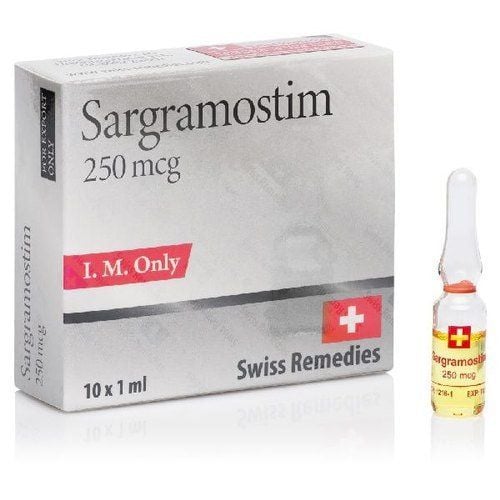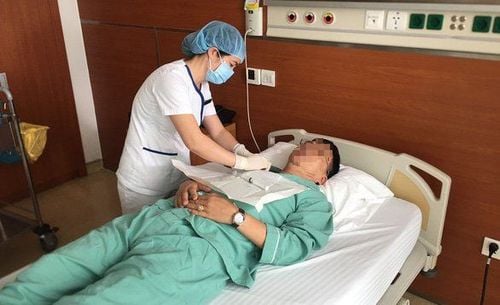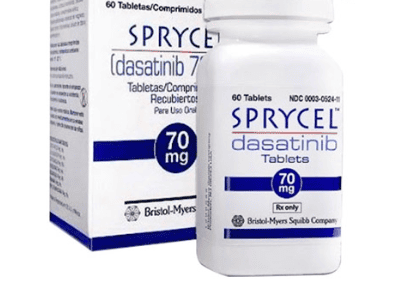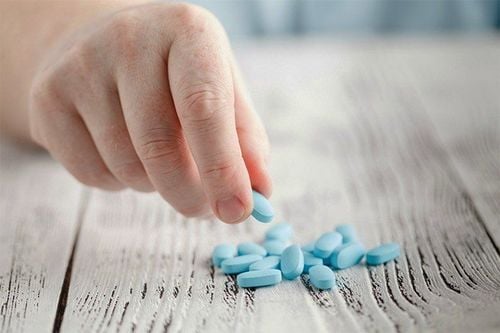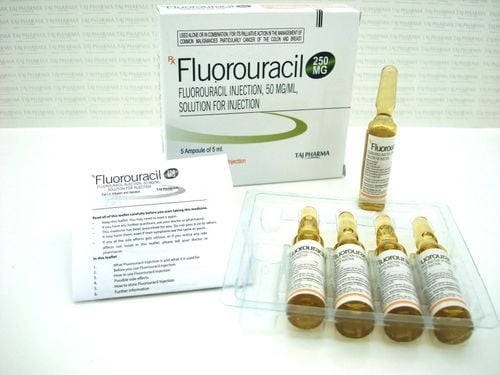This is an automatically translated article.
The article was written by Internal Oncologist - Internal Oncology Department - Vinmec Times City International General Hospital.The proportion of elderly people with cancer is increasing. Maintaining or improving their quality of life has become an important goal in cancer treatment. Studies show that about 16% of patients over 50 years of age are left untreated, with this rate rising to 22% in those over 70 years of age.
1. Cancer in elderly patients
Cancer in elderly patients is often diagnosed late and has a large proportion of patients untreated. Late diagnoses can affect a patient's ability to cure and survival. The main reasons for late cancer diagnosis are comorbidities, lack of supportive social environment, difficulty walking, and cognitive impairment.In the treatment of cancer all chemotherapy drugs have side effects, it is important to weigh the benefits and risks associated with these treatments, especially in the elderly. . They are actually more vulnerable to therapeutic toxicity and more likely to have adverse effects. We can mention a decline in kidney function, a decrease in bone marrow reserves, anemia, poor nutrition or even changes in the digestive system...

In addition, comorbidities have an impact on treatment choice, which often limits access to these methods. Other diseases in the elderly - such as diabetes, vascular disease and impaired kidney function - increase the risk of infection, anemia, nausea, depression and exhaustion. Elderly patients also recover more slowly from treatment sessions. Being bedridden for a few weeks can deplete the general well-being of the elderly making it difficult for them to fully recover
As described above, cancers in older people are heterogeneous and complex ( comorbidities, general health, drug interactions, dosage adjustment) and maintaining quality of life represent a major challenge in the care of these patients. In advanced disease stages, treatment is palliative, the aim is to control disease and pain, limit drug toxicity, and maintain a harmonious quality of life.
Trắc nghiệm: Thử hiểu biết của bạn về bệnh ung thư
Ung thư là nguyên nhân gây tử vong hàng thứ 2 trên thế giới. Thử sức cùng bài trắc nghiệm sau đây sẽ giúp bạn có thêm kiến thức về yếu tố nguy cơ cũng như cách phòng ngừa bệnh ung thư.
Bài dịch từ: webmd.com
2. Cancer treatment in elderly patients
We need to focus on palliative treatment of the symptoms that older cancer patients face during treatment because they can affect their quality of life. Especially in the metastatic stage, the aim of treatment is to control the main symptoms. Therefore, attention to quality of life is particularly relevant for making treatment decisions for older patients with metastatic cancer. It is important to emphasize that cancer treatment itself has a large impact on the patient (eg, chemotherapy-induced anemia, weakness, loss of appetite, reduced mobility, or even depressive symptoms). ). Pain, fatigue, insomnia and mood disturbances are the four most common and most distressing symptoms that elderly cancer patients complain of during illness and treatment.Due to advanced age and many biological disorders, accompanied by cancer symptoms, disease has a strong impact on physical and social activities. Balancing the rhythmic functioning of biological systems plays an important role in maintaining quality of life for cancer patients.
Chemotherapy in elderly patients with terminal cancer has become an important issue for oncologists worldwide. Consider carefully the indications of chemotherapy in the elderly with advanced cancer, tolerability and toxicity of chemotherapy in this age group. For patients who are applied chemotherapy, the drug is usually well tolerated and has the effect of prolonging the patient's survival time. The relatively small number of elderly patients not receiving chemotherapy may be due to poor health and the effects of comorbidities. To limit the risk, doctors often use simple regimens, low toxicity and reduce the dose for patients.
Chemotherapy and radiation therapy together cause more frequent and more severe side effects in older people than in younger people. Elderly patients also recover more slowly from treatment sessions. Therefore, careful consideration should be given when implementing this protocol.
Targeted treatments, immunity, hormones... have less side effects, we can prioritize them. In addition, it is necessary to focus on improving the patient's condition by nutritional measures, rehabilitation, and health education counseling. Age significantly increases the risk of cancer, in addition, unhealthy lifestyle over the years in the elderly is also a factor that increases the risk of cancer. However, it's never too late to make healthy lifestyle changes. So, quitting smoking, limiting alcohol use, prioritizing a diet rich in vegetables, controlling weight and being physically active can all be encouraged for the elderly.

Balancing the benefits and disadvantages of treatment for the elderly to find the right treatment for the patient is an important factor in cancer prevention for the elderly.
Currently, in addition to immunological methods, at Vinmec International General Hospital, therapy to strengthen the autologous immune system is also applied - Breakthrough technology in cancer treatment of the world. Currently, the leading country in this treatment technology is Japan. This treatment supports cancer patients by enhancing the "Internal Force" which is the patient's own immune cells to destroy cancer cells and/or prevent the cancer from coming back.
Please dial HOTLINE for more information or register for an appointment HERE. Download MyVinmec app to make appointments faster and to manage your bookings easily.




